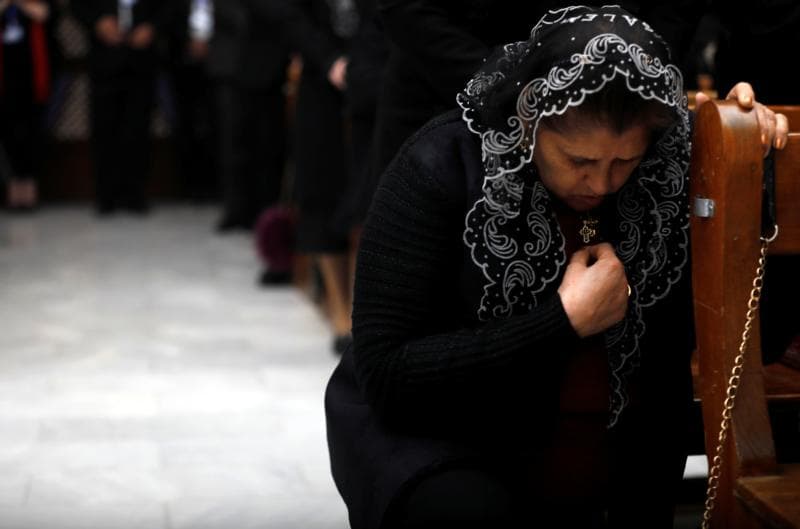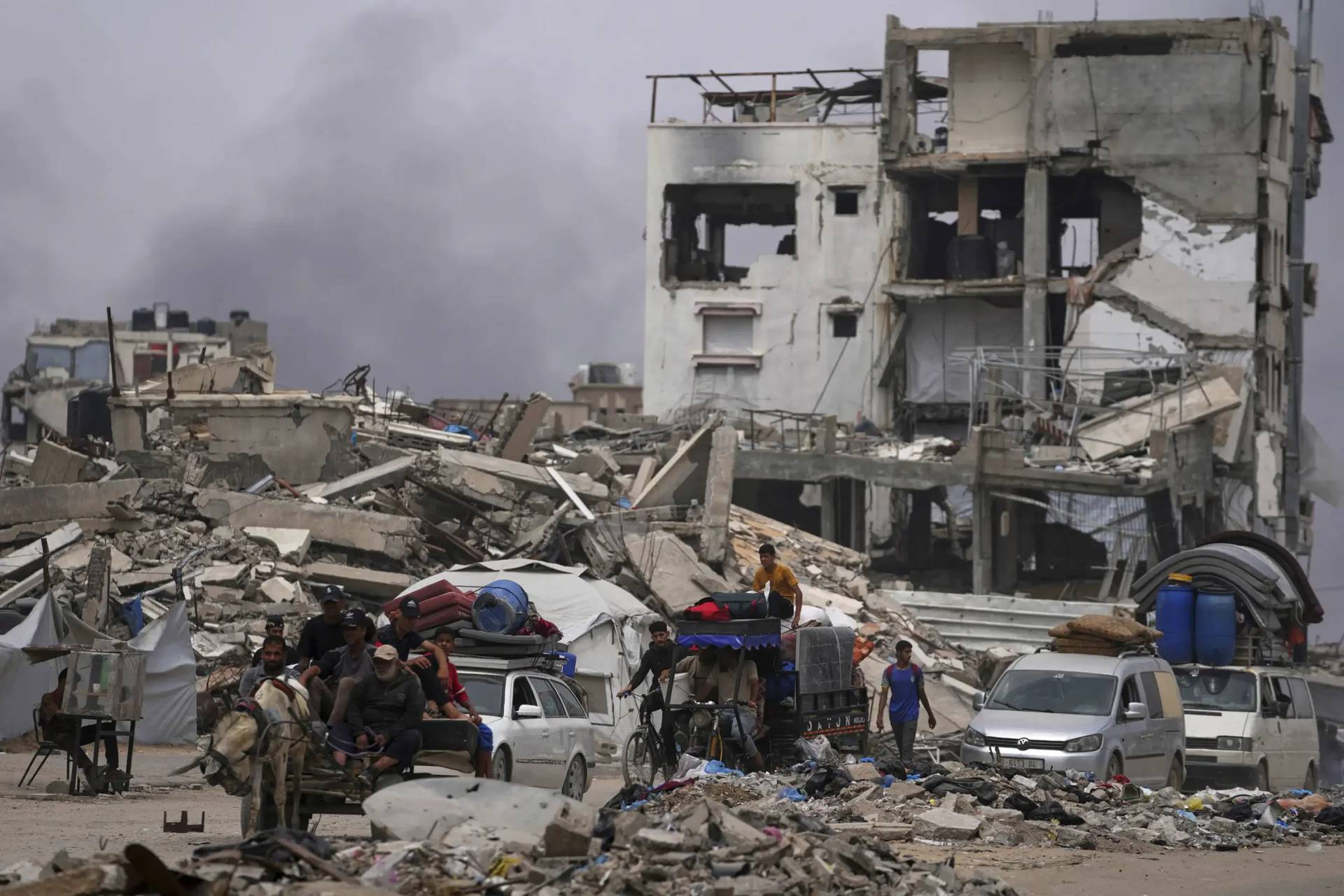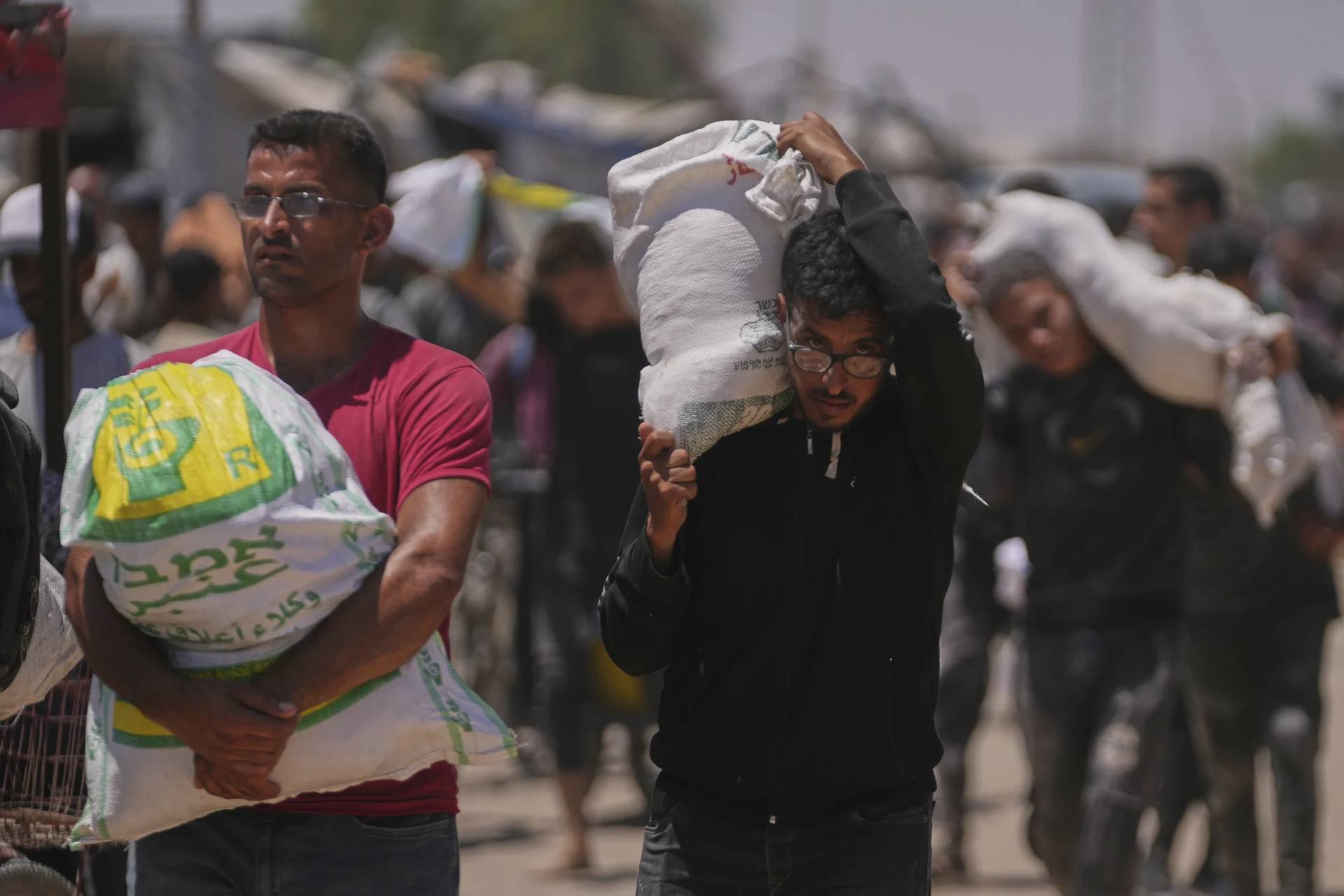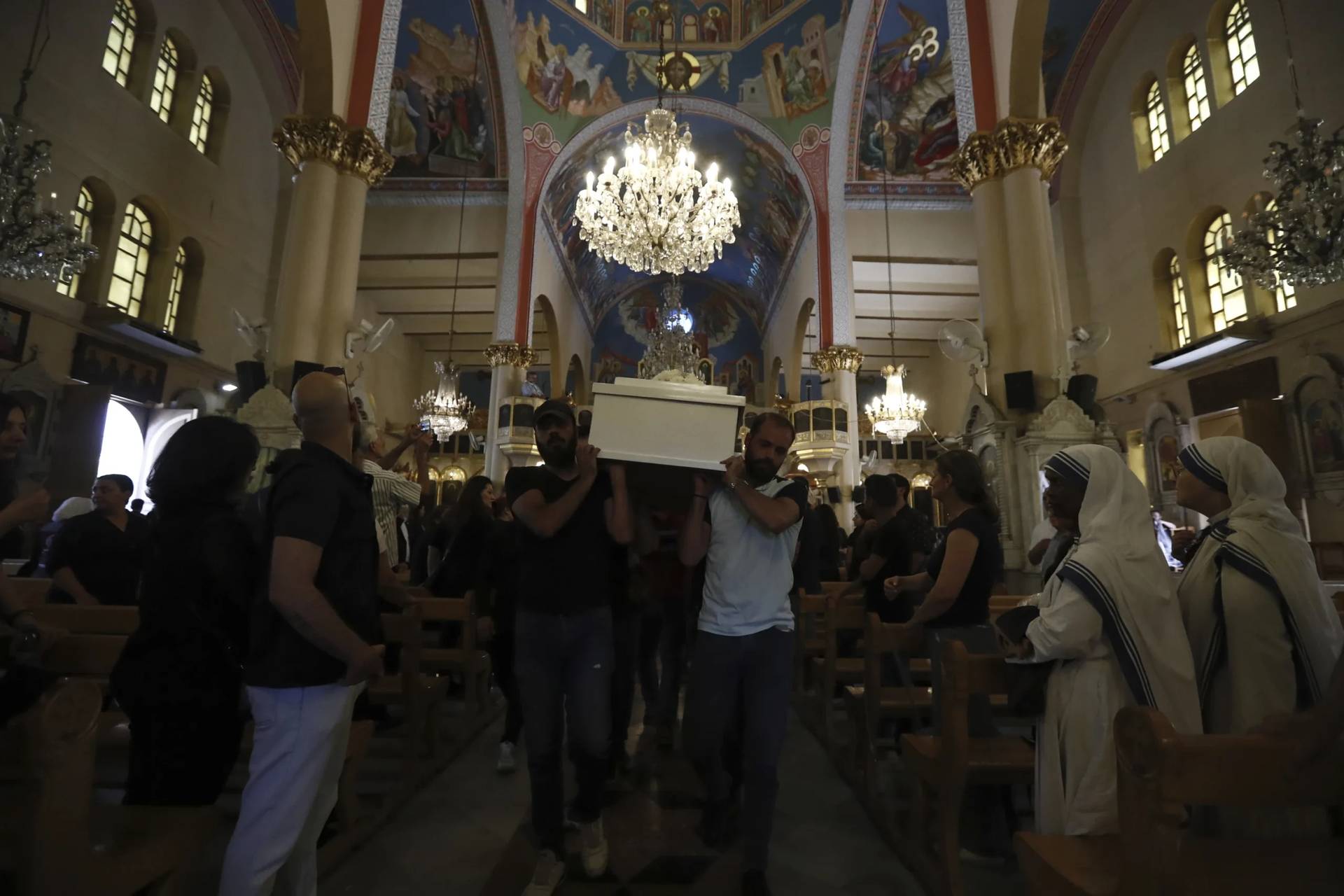ROME – One Iraqi priest voiced hope that if Pope Francis’s scheduled visit to Iraq next month takes place as expected, the trip will help not only to heal the wounds of the country’s lacerated Christian community, but that it will also advance efforts to restore trust with the Muslim population.
“For us to welcome the pope is to welcome someone whose presence will heal many wounds inside the hearts of our faithful,” and who will show “that the Church has not left its faithful,” Father Karam Qasha, Chaldean pastor of Telskuf, said during a Feb. 4 roundtable with journalists.
Like many, Qasha, whose village is located roughly 19 miles north of Mosul, believes Pope Francis’s visit will not just be for Iraq, “but for the whole Middle East,” because throughout the region, whether they are refugees or still at home, Christians have faced enormous difficulty.
“We hope this visit will bring a different framework, a different horizon, to our faithful,” he said.
Pope Francis is expected to visit Iraq next month, making him the first pope to ever set foot in the country.
Several of Francis’s predecessors had wanted to visit Iraq given its ancient Christian roots and to encourage the local Christian population after decades of war and persecution, but for various reasons were unable to.
During his March 5-8 visit, the pope is scheduled to make stops in Baghdad, Erbil, Qaraqosh, Mosul, and the Plain of Ur, with a possible brief detour to the city of Najaf for a meeting with Grand Ayatollah Al-Sistani, one of the most authoritative figures in Shi’a Islam.
Local church authorities, including Chaldean Catholic Patriarch Luis Raphael Sako, hope that should the pope and Al-Sistani meet, they will sign the Human Fraternity document already signed by Pope Francis and the top authority in Sunni Islam, the Grand Imam of Al-Azhar Ahmad Al-Tayyeb, during Francis’s 2019 visit to the United Arab Emirates.
Speculation has arisen in recent weeks whether the papal visit might be postponed due to concerns about security, an increase in coronavirus cases, and the pope’s sciatica, which twice last month forced Francis to skip out on major public audiences and liturgies.
So far, the Vatican has said nothing to suggest the visit won’t happen, and as of Thursday the press corps traveling with the pope were called in to get the first dose of their anti-COVID vaccines. However, just last weekend the Iraqi Ministry for Health issued a statement warning that a second, more dangerous wave of the coronavirus could hit, as cases have increased, and citizens are not obeying health and safety norms such as distancing and wearing masks.
In his remarks, Qasha seemed confident the trip would take place, and voiced hope that the visit would not only help the process of restoring trust among Christians and Muslims, but that the pope’s words would inspire change in a government plagued by corruption.
Noting that Christians in Iraq are often referred to as a “martyred” population, Qasha said there are only around 250-300,000 Christians left in the country, which once had a Christian population of close to 1.5 million.
Qasha himself noted that the number of Christian families in his village dropped from around 1,450 to just 500 after ISIS’s invasion of the Nineveh Plain. Even after ISIS was defeated in 2017, most Christians left, either moving abroad, or to larger cities such as Erbil, which became a temporary home to thousands of displaced families while ISIS was at large.
With Christians being such a small minority, one of the biggest preparations for the Church ahead of the papal visit is working to create “a climate of welcome,” he said, noting that many people know little about what Christians believe.
One primary way local Church leaders are spreading the word, Qasha said, is by speaking to local media outlets about Christianity as a religion of peace. “It’s a visit of peace, we must show this to our brothers,” he said.
Leaders are also speaking out frequently about the need “for this visit to support, encourage, relations between religions in the country.”
This message is especially relevant as Christians and Muslims struggle to regain trust, as in many cases, once Christian families fled ISIS, it was their Muslim neighbors who came to loot and even confiscate their homes and property.
“When ISIS came, our neighbors were the first to come steal from us. Because of this, trust was broken,” Qasha said, saying Christian land and property had always been in the sights of some Muslims who saw their presence in the country as temporary.
“So, how can you go to a neighbor of yours, who is still there, look at them and you know well that they were one of those who came to rob your house, (and forgive)?” he said.
“It’s not easy to greet someone who did wrong to you, but the call of Christianity is this,” he said.
Speaking of the rumored meeting between Pope Francis and Al-Sistani, Qasha said he believes it will hold special significance for both Christians and Muslims and will be “an important meeting to look for peace among ourselves and others.”
“Unfortunately, there is a rupture of trust between the two, us and them, but we hope to be able to start again with this confidence,” he said.
In terms of what message Pope Francis might carry with him for a government plagued by corruption, Qasha said that even if the pope were to chastise or invite a change of heart, leaders wouldn’t listen, “because when there is money, when there is personal benefit, our ears aren’t so open.”
Even though roughly 80 percent of its population lives in poverty, Iraq is not a poor country, he said, but personal gain has consistently outweighed the good of the general population.
While calls to clean house from inside Iraq have largely fallen on deaf ears, Qasha voiced hope that with someone as influential as Pope Francis coming from the outside, “it could change something.”
In terms of preparation for the pope’s events and audiences, Qasha said that at the moment, things are a bit disorganized and plans have changed “a lot,” but one certainty is that all of Francis’s major events will be transmitted live on local television channels.
Referring to twin suicide attacks at a crowded market in Baghdad last month that left dozens dead, Qasha said he believes there will be “strong security” for the papal visit, and that the government is taking the task of papal protection seriously. Yet even if all precautions are taken, that doesn’t mean there isn’t danger.
“We hope that nothing will fall,” he said, adding, “Anything can happen, but we hope not.”
Follow Elise Ann Allen on Twitter: @eliseannallen















